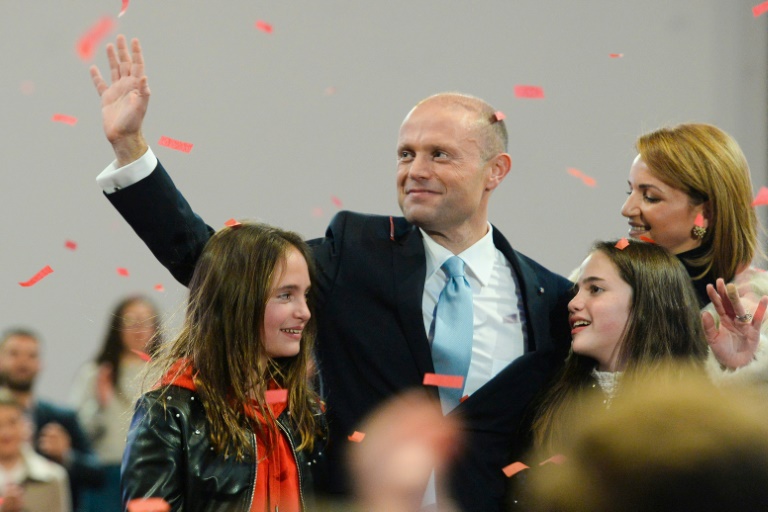Outsider Robert Abela is set to become Malta’s new premier on Sunday after Prime Minister Joseph Muscat’s downfall over the murder of an investigative journalist.
Abela, who is seen as representing continuity, was elected leader of the Labour Party, meaning he automatically takes the role of prime minister.
In the election run-up, Abela did not criticise Muscat, who announced in December he would quit following widespread anger over his perceived efforts to protect friends and allies from a probe into the 2017 slaying of blogger Daphne Caruana Galizia.
Muscat, 45, was set to resign Sunday.
Prior to the election result, activist groups cast doubt on whether his successor would bring about real change in the Mediterranean country, which they say has been taken over by “criminals”.
Dubbed the “one woman WikiLeaks”, Caruana Galizia exposed corruption at the highest levels. She was killed by a car bomb on October 16, 2017 in an attack that made world headlines.
Less than an hour before her death, she wrote on her blog: “There are crooks everywhere you look. The situation is desperate.”
It was expected that some 17,500 Labour voters would vote for the party’s first mid-term prime minister in history.
Two candidates were vying to take over as Labour leader and prime minister: deputy prime minister and health minister Chris Fearne, a 56-year old surgeon, and 42-year-old lawyer Abela.
Fearne had the backing of most cabinet members but Abela had been closing the gap in the polls in the final week of the campaign, the Times of Malta said.
Neither referred to the Galizia killing in the run-up to the election. Both have insisted they represent continuity, highlighting their determination to keep the economy on its stellar trajectory.
– ‘Reputation as pirates’ –
“We have the reputation (in Malta) of being pirates. The reason is that a group of criminals have taken over our government,” Manuel Delia, a member of the activist group Repubblika, told AFP.
 AFP/File / Matthew MirabelliThe killing triggered widespread anger and protests
AFP/File / Matthew MirabelliThe killing triggered widespread anger and protests“We need change.”
Martina Darmanin, a 24-year old academic, said the reporter’s killing had been “a shock”, and she had taken part in the regular demonstrations denouncing “the mafia in power”.
“As a member of the EU we want and we deserve better than this: good governance, rule of law,” she said, adding that she was “fed up of hearing that I’m from a tax haven country”.
Read Also: ‘How Buhari Prevented Us From Disbanding Boko Haram’
Repubblika plans to deliver a manifesto to the new prime minister calling for a clean up of politics and the economy as well as a revamp of the constitution to guarantee a genuine separation of powers.
In an emotional farewell address Friday, Muscat said he was “sorry” about the killing, the investigation into which he has been accused of hampering.
“I paid the highest price for this case to be solved under my watch,” he said.
The opposition Nationalist Party slammed Muscat’s “surreal” speech, pointing out that it was Caruana Galiza who had paid that price.
– ‘Indelible stain’ –
Muscat’s fall from power followed daily protests led by supporters of the Caruana Galizia family, who accuse him among other things of shielding his chief of staff and childhood friend Keith Schembri, who has been implicated in the murder.
The journalist’s family had called for Muscat to step down immediately, but support from his party and his own popularity — linked to Malta’s booming economy — bought him time until the party election.
Three men are on trial for allegedly detonating the bomb that killed Caruana Galizia, while a fourth — powerful businessman Jorgen Fenech — was charged as an accomplice after being detained as he tried to leave the country on his yacht.
Fenech’s arrest in November sparked the resignation of tourism minister Konrad Mizzi, who formerly served as energy minister, and Schembri.
The murder and probe, Malta Today wrote on Saturday, “cast an indelible stain on Muscat and his administration”.
AFP NEWS

